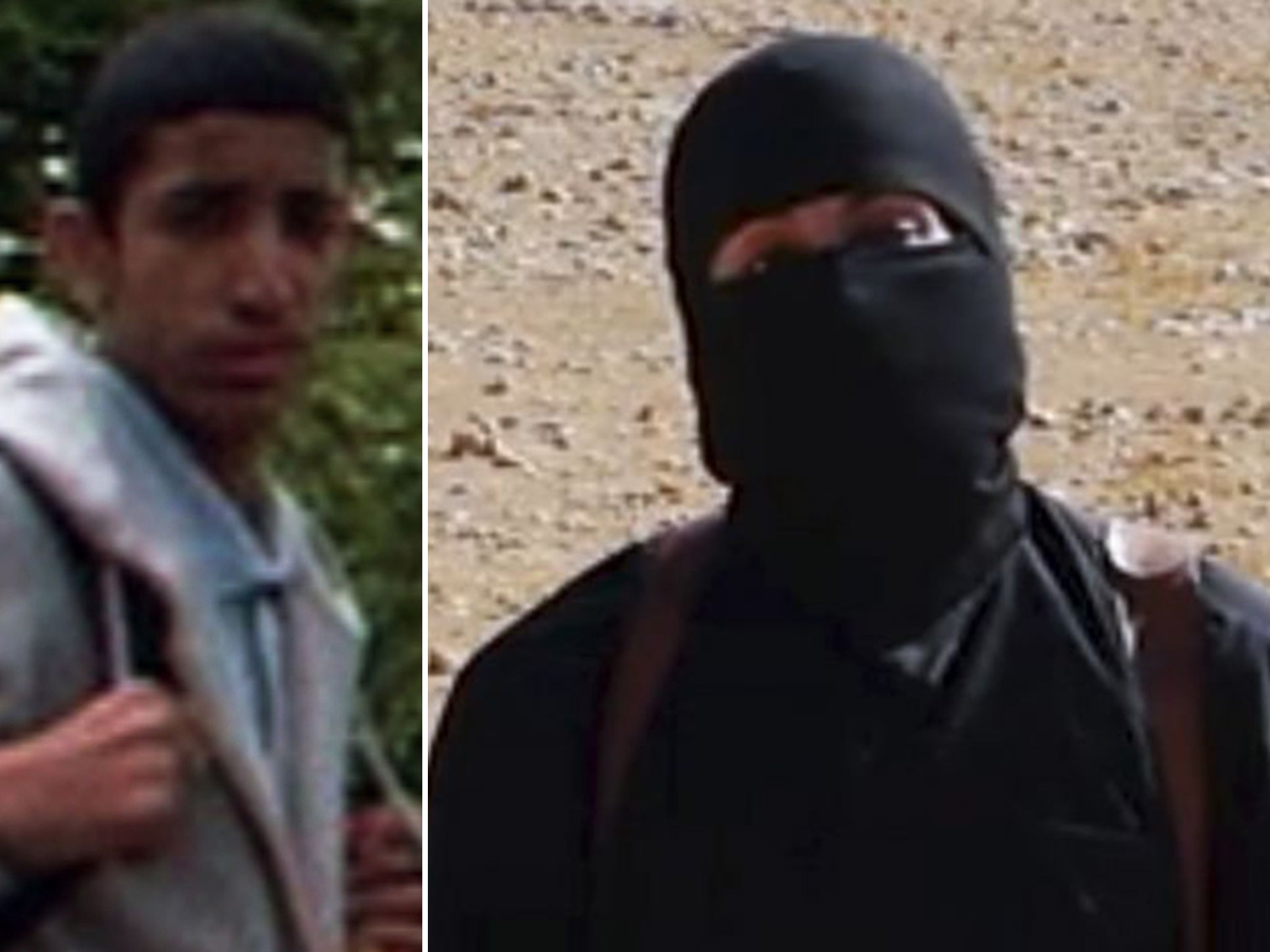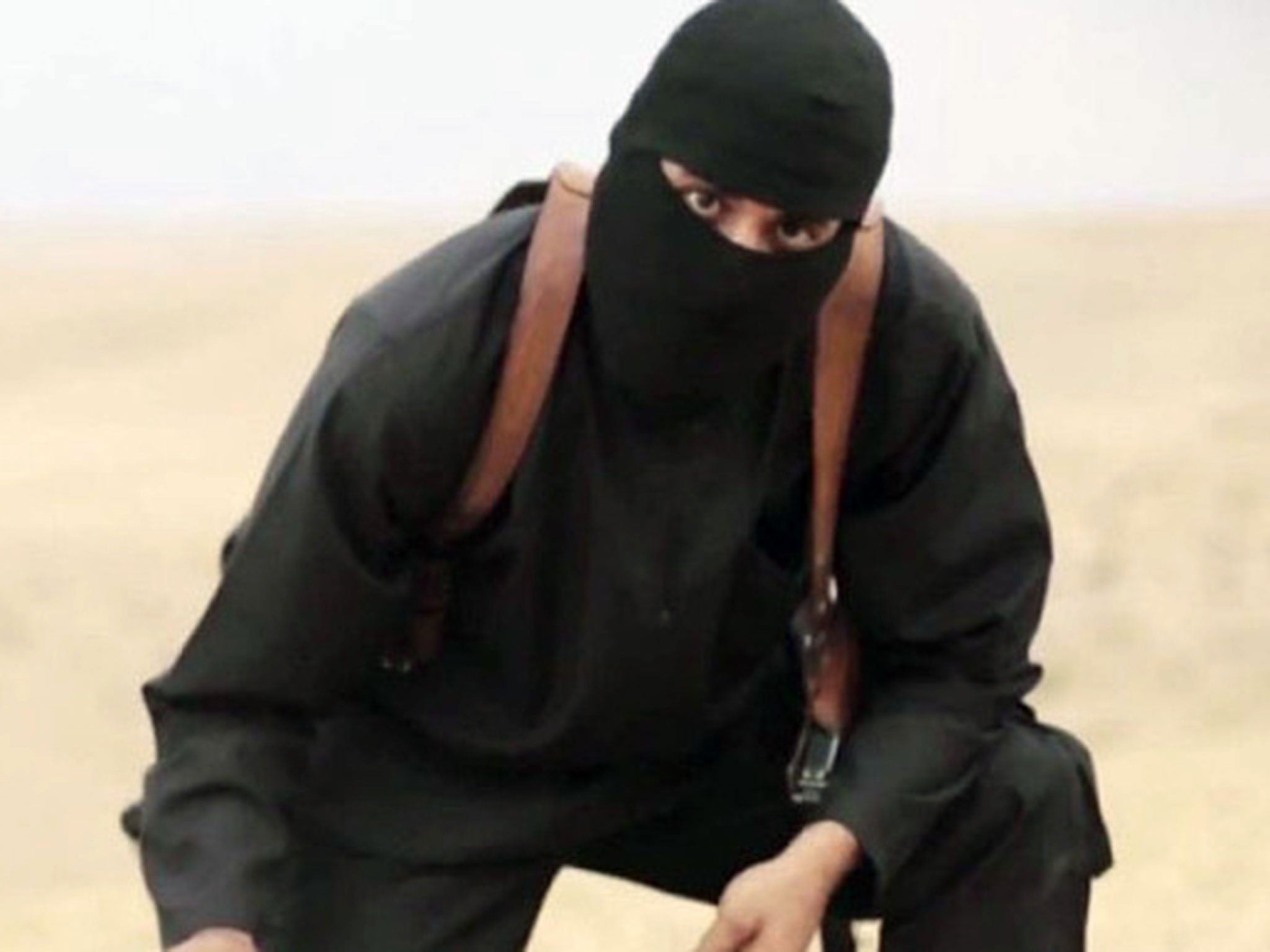Why Jihadi John's 'assassination' is nowhere near as important as you think
Martyrdom for the faith is the group's central feature


The assassination of Mohammed Emwazi by a US drone is a symbolic success for the US and Britain in a war that is full of symbols. The ritual murders of journalists and aid workers carried out by Emwazi were themselves intended to symbolise the ruthlessness and determination of Islamic State (Isis) and create fear among its enemies.
But his death, if confirmed, will not significantly weaken Isis which remains in command of a powerful army and state machine ruling an area the size of Great Britain. Unfortunately, it is a movement never likely to be short of executioners and in whose ideology martyrdom for the faith is its central feature.
Nevertheless, part of the appeal of Isis in the eyes of its followers is that it does not fail, that it wins divinely-inspired victories against the odds, such as capturing Mosul last year when a few thousand of its fighters defeated 20,000 Iraqi troops. Episodes like the killing of Emwazi show Isis as vulnerable and that its security can be penetrated by intelligence agencies. David Cameron exaggerated on 13 November when he said that it was “a strike at the heart of Isis”, though Isis will be worried that informers in Raqqa should be so well-informed.
State-sponsored assassinations by drone and special operations forces on the ground have a long history of failure stretching back to the Vietnam War. They depend on the assumption that the organisation targeted has a finite number of leaders who cannot be replaced if eliminated. But the outcome of assassination campaigns has invariably been disappointing, if not counter-effective. A US study of 200 cases in Iraq between June and October in 2007 when a local insurgent leader was assassinated or captured showed that the number of IED attacks on US troops did not go down, but increased by 40 per cent. The dead leaders were being rapidly replaced by more violent and effective insurgents.

President Obama’s administration has much favoured the use of drones as a central element in its “War on Terror”, notably in Yemen, where drones have been used since 2002. The target has been Al Qaeda in the Arabian Peninsula (AQAP) which has lost many of its leaders, but this has not prevented it expanding rapidly over the last year and playing an increasingly important role in the Yemeni civil war. In recent weeks it has been leading the struggle for control of Taiz, one of the largest cities in Yemen.
The assassination of a single individual in a guerrilla organisation like Isis or AQAP is very difficult if the person is careful about their security. There is also the problem that drones, air strikes or killings by ground forces will eliminate an indeterminate number of innocent villagers, wedding parties or local gatherings. The temptation is then for those who carried out the attack to go on insisting that the casualties all came from a “terrorist” group, but the claim has frequently been shown to be false.
Isis is coming under greater pressure from many sides, the killing of Emwazi being only one of them. It briefly cut but has now lost control of the only road into the government-held part of Aleppo after a counter-attack by the Syrian Army supported by Russian aircraft. The same forces have broken Isis’s long siege of the Syrian army base at Kweiris east of Aleppo and it is becoming less likely that Isis will be able to advance west to cut the main M-5 highway north of Damascus. In northern Syria, the Kurds have been pressing Isis back and could advance on Raqqa or south from Hasaka City. In Iraq, Iraqi Kurdish forces backed by heavy US air strikes have finally captured Sinjar City which Isis seized last year. Cumulatively, these are serious territorial losses, but Isis is a guerrilla movement that does not necessarily fight for fixed positons and its retreats do not mean that it is anywhere near defeat.
Join our commenting forum
Join thought-provoking conversations, follow other Independent readers and see their replies
0Comments